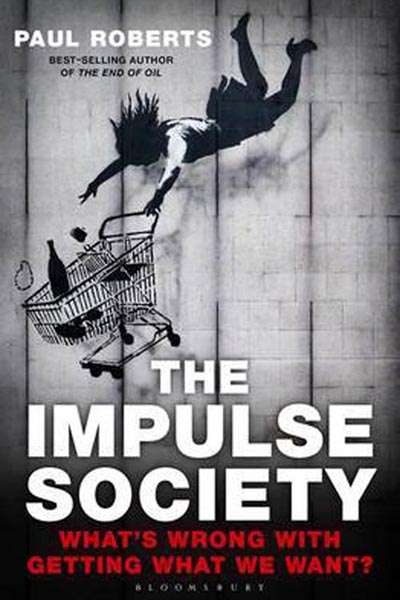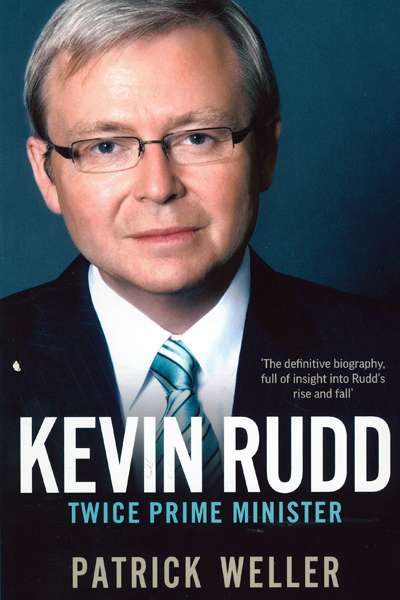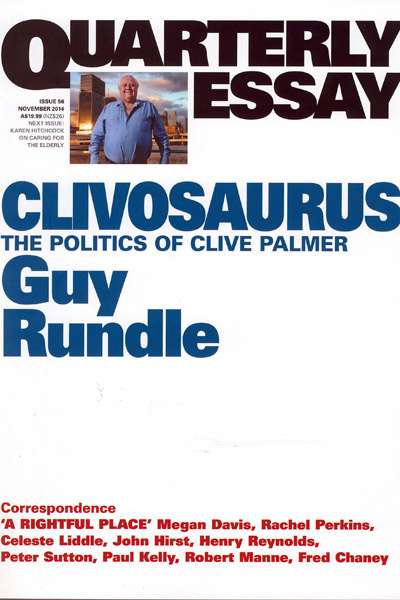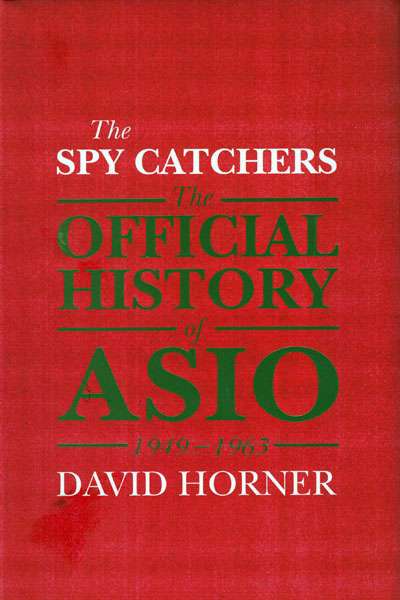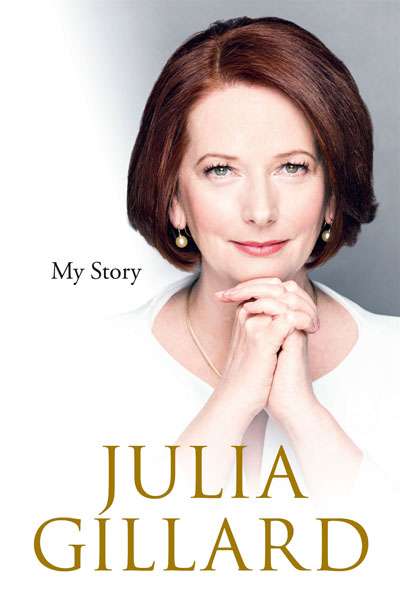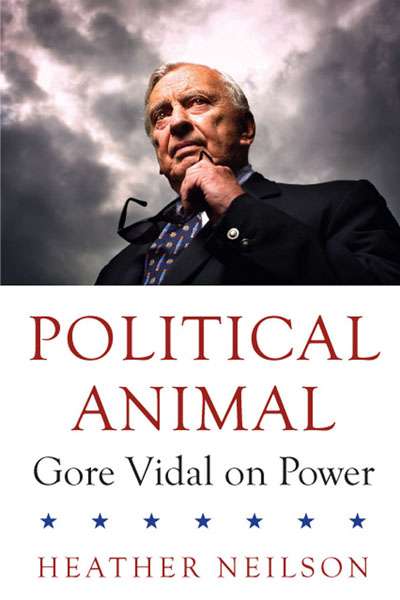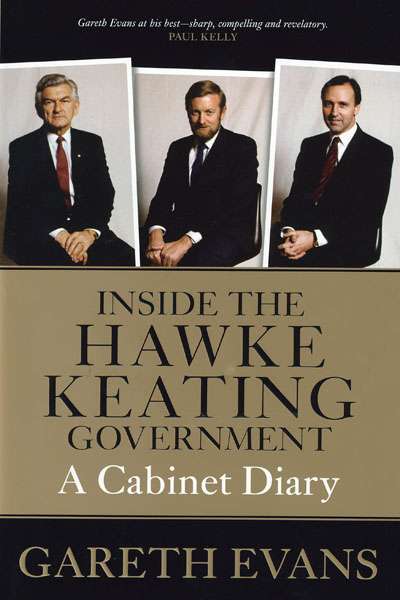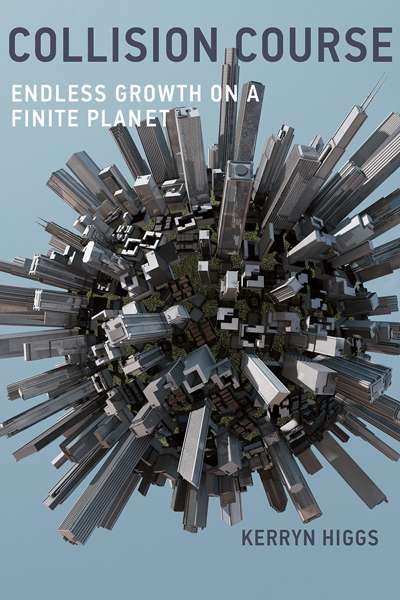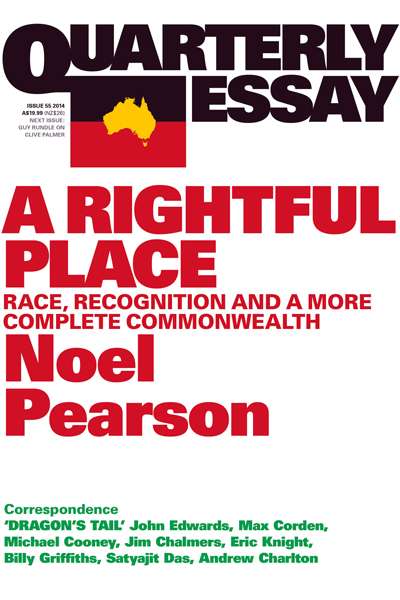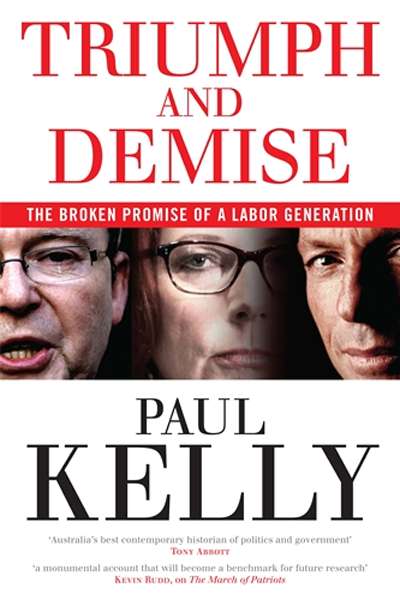Politics
The Impulse Society: What’s wrong with getting what we want? by Paul Roberts
Paul Roberts’s The Impulse Society is the latest entry in a now familiar subtype of polemic: that of the society in decline, the symptoms of which run the gamut of Western post-industrialist ills from childhood obesity to the meltdown of global economic markets, and the syndrome of which is, at root, advanced capitalism. The lineage can be traced back through, among many others, Chris Hedges’ Empire of Illusion: The End of Literacy and the Triumph of Spectacle (2009), Neil Postman’s Amusing Ourselves to Death (1985) and Guy Debord’s The Society of the Spectacle (1967).
... (read more)Kevin Rudd: Twice Prime Minister by Patrick Weller
In modern Australia, politics and public policy appear to reflect a narrow range of managerial, political, and economic opinions. Even the much publicised ‘listening tours’ conducted by politicians seem designed to show that they are sensitive to community concerns, but not so sensitive as to want to change policy direction. What makes current discussion of political issues so dispiriting is that over the last three decades, economic measurements and business ideas have come to dominate public life. Citizens are now treated by the public service and their masters as ‘consumers’, former public goods such as education are now narrowly viewed as a form of economic productivity, and community service providers, such as Australia Post, are written about in the media as mere businesses ripe for privatisation. Between 2007 and 2010, Prime Minister Kevin Rudd gave the impression that he might become the ‘circuit breaker’: a leader whose professed faith in the potential for government intervention and community consultation might lead to a more engaged and empowered citizenry, as well as a government more in tune with the needs of the electorate.
... (read more)Clivosaurus: The politics of Clive Palmer (Quarterly Essay 56) by Guy Rundle
Guy Rundle ends his engrossing account of Clive Palmer with a disclaimer: ‘Knowing Clive, he will contradict everything asserted in this essay in the two weeks between its going to press and hitting the bookstands.’ Since the publication of this essay, Palmer has not contradicted the assertions of the essay, but his party has been challenged. Senator Jacqui Lambie has resigned from the Palmer United Party. At the November Victorian election, preference deals led to the election of micro parties to the Upper House, without a Palmer United Party member.
... (read more)The Spy Catchers: The official history of ASIO 1949–1963, Volume One by David Horner
In the interests of national security, my luggage was recently searched at Los Angeles airport. The culprit: Spy Catchers. The uncorrected proof copy was so bulky that it triggered an alert. I declined to tell the Customs and Border Protection officer (in no mood for irony) that one chapter in the offending item was entitled ‘Keeping out Undesirables’. David Horner’s first volume in the history of ASIO is a big book – big on detail, broad in scope, and, overall, impressive in achievement.
... (read more)Much like her government, Julia Gillard’s memoir resembles the proverbial curate’s egg. Where her passions are involved, as with education (‘Our Children’) or the fair work laws, we are provided with a compelling policy read. Where they are not, as in large slabs of foreign policy, the insightful competes with the pedestrian, enlivened admittedly with her personal talents in handling the great and the good – handballing a football with Barack Obama in the Oval Office, for instance. A chapter on ‘Our Queen’ and the republic is rather jejune, though Gillard has a nice line on changes in the royal succession as providing ‘equal rights for sheilas’. The fact that ‘every prediction the departments of Treasury and Finance ever made about government revenue turned out to be wrong’ makes for dispiriting reading on fiscal matters.
... (read more)American writer Gore Vidal was an intimate of political power. His grandfather was a US senator; his father served as Franklin D. Roosevelt’s Director of Air Commerce. When his mother remarried, to Hugh Auchincloss, Vidal obtained a descendant of Vice President Aaron Burr as a stepfather ...
... (read more)Inside the Hawke–Keating Government: A cabinet diary by Gareth Evans
Gough Whitlam was fond of replying to requests for interviews from historians by saying that all the answers could be found in the archives. ‘Go to the documents, comrade’, was his refrain. However, official documents rarely tell the whole story, particularly those from the modern era, whose authors are conscious that their words could so easily be exposed to public scrutiny. In particular, they are usually bereft of the innermost thoughts and motivations of the politicians and public servants. By contrast, politicians’ diaries can be goldmines. Written contemporaneously, an unguarded diary entry can transform our understanding of people and events.
... (read more)Collision Course: Endless growth on a finite planet by Kerryn Higgs
This clear and cogent book is an important wake-up call. It should not need saying that it is impossible for human populations and economies to grow without limit on a finite planet, but that delusion is widespread. This book is a reminder of the inconvenient truth that should be informing our leaders ...
... (read more)A Rightful Place: Race, Recognition And A More Complete Commonwealth (Quarterly Essay 55) by Noel Pearson
Whether you love or hate lawyer–activist Noel Pearson’s ideas, you have to admire his chutzpah, his willingness to put his ideas out there for public discussion and debate, even if his own dogmatism sometimes limits his diplomatic engagements ...
... (read more)Triumph and Demise: The broken promise of a Labor generation by Paul Kelly
Paul Kelly’s considerable research ability, enviable political knowledge, narrative skill, and indulgence in polemics all figure in his new book. The former qualities make it a must-read for the politically engaged; the latter is so pronounced that such readers may succumb to frustration and throw the book at the wall before reaching the valuable final chapter where at last we arrive at a coherent account of the systemic roots of ‘the Australian crisis’.
... (read more)
